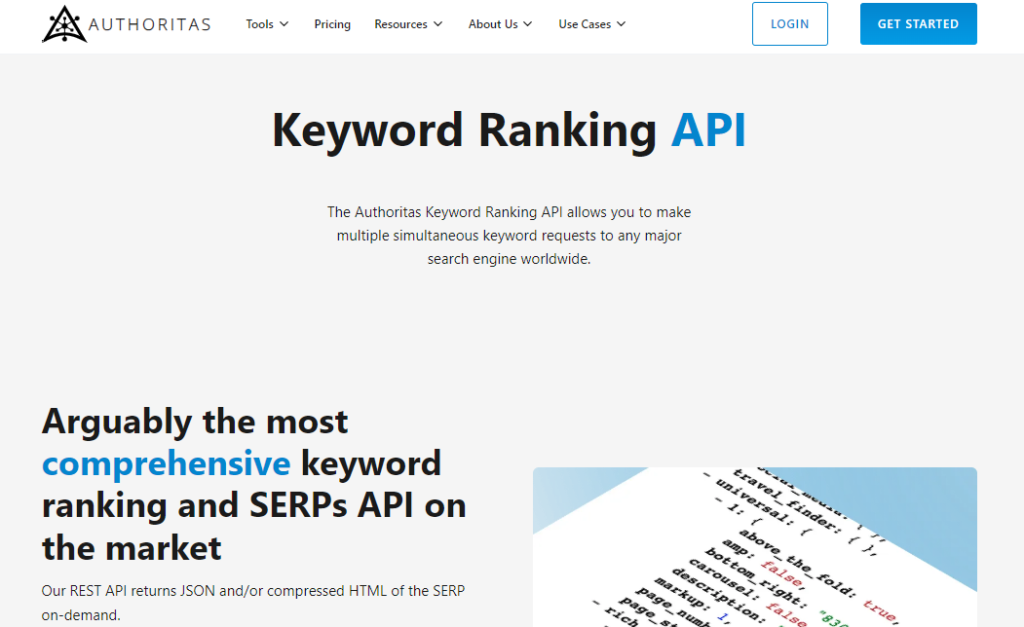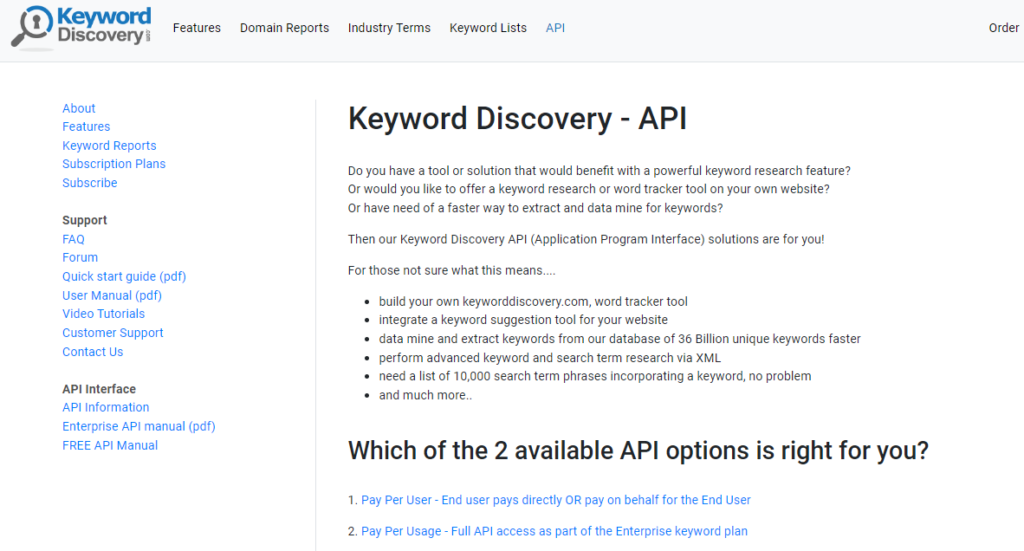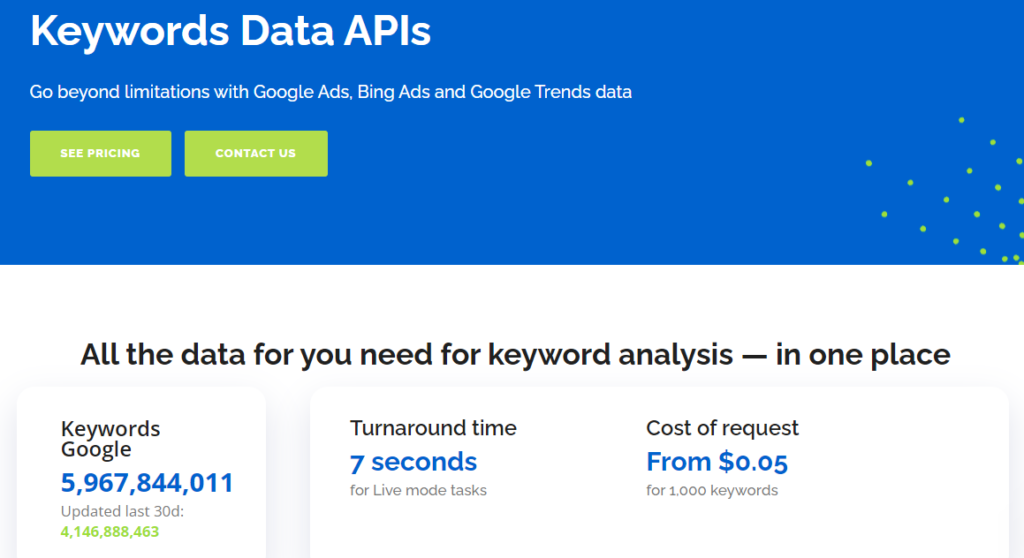Keyword Research APIs: Unlock SEO Insights & Data!
Is your digital strategy truly reaching its potential? In today's competitive online landscape, understanding and leveraging the power of keywords is no longer optional it's essential for survival and growth.
The world of Search Engine Optimization (SEO) is in constant flux, a dynamic environment where staying ahead of the curve is paramount. One of the most critical components of any successful SEO strategy is, undoubtedly, keyword research. But, in a realm where algorithms are constantly evolving, and user behavior is ever-changing, how can marketers and SEO professionals ensure they're making informed decisions? The answer, in many cases, lies in the use of sophisticated tools and technologies, specifically, Keyword Research APIs.
These APIs (Application Programming Interfaces) provide a gateway to a wealth of data, insights that would be nearly impossible to gather manually. From search volume estimates to competitive analysis, these tools offer a comprehensive view of the keyword landscape. Furthermore, they enable automation and efficiency, allowing marketers to focus on strategy and implementation rather than data collection. These APIs are designed to offer a simple and straightforward approach to keyword research.
Let's delve deeper, considering the landscape. The data returned by keyword tool APIs for Google keywords often isn't localized to any specific location or language. The data you obtain often mirrors the numbers available in Google Keyword Planner. To align with Google Keyword Planner data, you might need to remove location settings and configure the network to include both Google and search partners. Keyword planning itself is a multifaceted process, involving the acquisition of keyword metrics and forecasts and the exploration of new keywords to integrate into campaigns. A typical keyword planning workflow typically involves creating a manageable list of initial ideas. Using historical search volume and cost-per-click (CPC) data, you can refine this list for forecasting purposes. This is where leveraging a keyword research API to crunch the data for you can speed things up.
Many tools are now available to assist with the vital task of keyword research, offering varying levels of depth and functionality. Semrush, for instance, provides a robust keyword research API. It provides a summary of a keyword, including its volume, CPC, competition, and the number of results in all regional databases. Semrush offers detailed insights into search patterns and keyword metrics. Their platform offers access to a vast database of over 20 billion keywords across 142 countries. Another tool, SearchAtlas, offers predictive keyword analysis, enabling professionals to refine their strategies with purpose. Wordtracker and Google Keyword Planner present alternative approaches, each with its own strengths and weaknesses, designed for adwords and not seo, competition and other metrics are given only for paid search. Instead, use a tool built for keyword research. The Google Keyword Research Tool, is specifically designed for AdWords and provides valuable insights, the numbers are scaled from a sample, and similar keywords are grouped together.
The data from these APIs is not just useful; it's actionable. You can generate forecast metrics for keywords, gaining insights into potential traffic. Then, armed with these insights, create a new campaign incorporating these keywords. You can further refine your approach, adjusting the keywords and estimation parameters to align with your marketing goals, using the selected keywords and CPC bids. For example, with the help of a tutorial, you can get the trending results and many more from the Google Trends website, the python api called pytrends does the job for you.
Beyond the tools themselves, there are crucial best practices. For a page dedicated to keyword research, relevant keywords could include "keyword analysis," "SEO keyword strategy," and "how to choose keywords." Furthermore, it's important to use relevant keywords naturally within the schema fields without overstuffing. Remember that the effectiveness of your strategy depends not only on the tools you use but also on your understanding of the underlying principles and your ability to adapt and refine your approach.
Keyword data from SEO data endpoints offer a plethora of solutions. The Google Ads Keyword API provides direct keyword data. AI keyword research empowers the discovery of keyword themes. Additional offerings include a Bulk Keyword Difficulty API, for obtaining keyword difficulty scores for up to 1,000 keywords per request, and a Bulk Keyword Research API for gaining search volume, CPC, backlinks, keyword difficulty, and related data. Tools like Wordtracker provide access to volumes for keywords that may not be available in Google Planner. These give you metrics and data to power your SEO campaigns and keyword research projects. The API offers developers the ability to build robust tools and applications that use the same keyword data. The keywords for categories endpoint of the DataForSEO API provides an opportunity to generate keyword ideas for a specific product or service category. DataForSEO Labs algorithm meticulously analyzes keywords, assigns appropriate category levels, and stores this information in a comprehensive database. The Keyword Finder tool, designed for local SEO, can provide precise local search results, allowing you to identify target keywords, analyze SERPs, and evaluate ranking keywords. Using the power of AI can help you discover keyword themes.
Automation is key. Taking the manual effort out of keyword research and automating it using Python and APIs from leading research tools will save time. The API query limit varies based on your subscription level and the number of tracked keywords, allowing clients with API access to make up to 31 calls per tracked keyword monthly. The Textblob API is also an efficient text analysis API for processing text data and executing NLP tasks. You can use this API to perform noun phrase extraction, classification, translation, sentiment analysis, POS tagging, and more.


